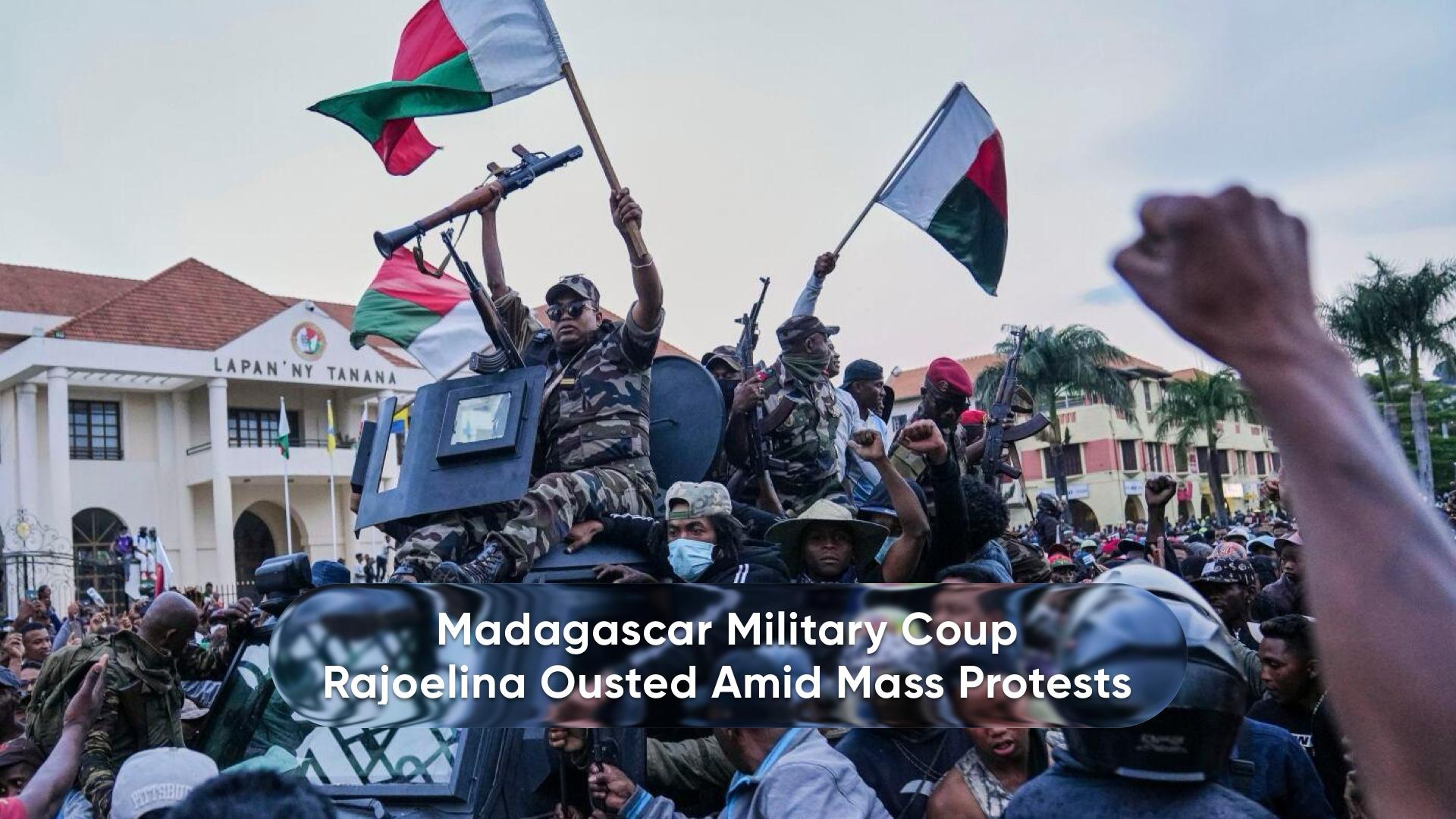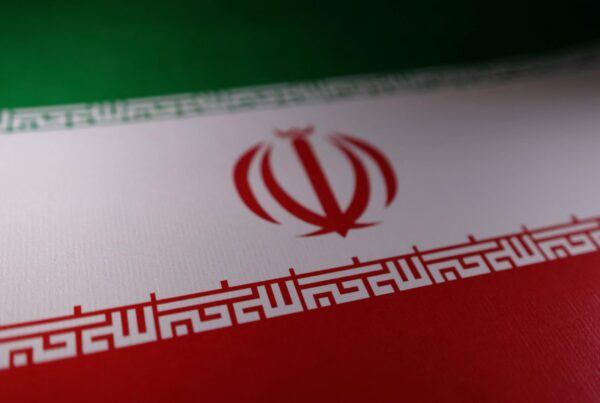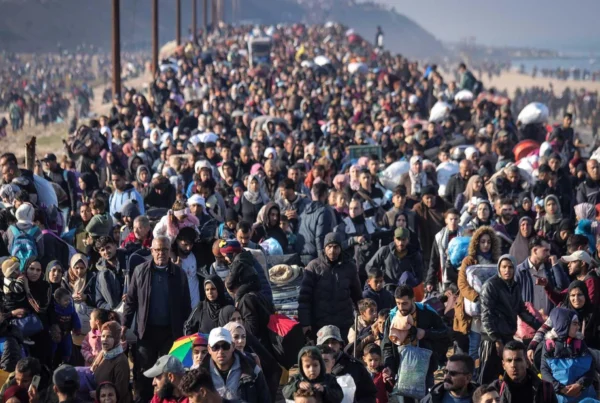The Madagascar military has officially taken control of the government after days of nationwide unrest forced President Andry Rajoelina to flee the capital. The dramatic takeover follows weeks of protests demanding his resignation over alleged corruption, economic hardship, and democratic backsliding.
Witnesses reported thousands flooding Antananarivo’s Independence Avenue, waving national flags and chanting for change. The situation escalated when security forces initially clashed with demonstrators before switching allegiance to the army’s leadership.
Military Council Declares Control and Transitional Plans
After President Rajoelina’s departure, the Supreme Military Council announced it had assumed full authority over the state. The statement was broadcast live on national television, confirming the suspension of the civilian government.
The council, led by General Richard Rasolofomanana, promised to restore stability and organize democratic elections within two years. However, many remain skeptical of the timeline, recalling Madagascar’s history of prolonged military transitions.
The Role of Parliament in the Ouster
The remote impeachment session of the National Assembly played a crucial symbolic role in legitimizing the power shift. Lawmakers, connecting via secure video conference, voted overwhelmingly to remove Rajoelina for “abandoning his post and violating the constitution.”
Though largely ceremonial, the move gave the military’s intervention a veneer of legality. Analysts note that this coordination suggests some level of prearrangement between civilian leaders and military officials.
International Reaction and Regional Concerns
The African Union and United Nations swiftly condemned the coup, urging a return to constitutional order. France, Madagascar’s former colonial power, expressed “deep concern” and called for restraint and dialogue.
Regional bodies like the Southern African Development Community (SADC) warned of possible sanctions if democratic governance is not restored promptly. However, neighboring states are cautious, wary of destabilizing trade and migration routes.
Deep-Rooted Discontent and Political Fatigue
Public frustration in Madagascar has been brewing for years. Despite economic growth in sectors like mining and agriculture, poverty remains widespread, and infrastructure projects have stalled. Many accuse Rajoelina’s administration of enriching elites while ignoring rural hardships.
The immediate trigger for the protests was the government’s announcement of fuel subsidy cuts and food price increases. Within days, demonstrations swelled from urban centers to remote provinces.
From Protest to Power Vacuum
Security forces initially attempted to disperse crowds with tear gas and water cannons. But as protests intensified, parts of the army began refusing orders. Eyewitnesses claim that tanks rolled into the capital not to suppress demonstrators but to protect them.
By the time Rajoelina fled the presidential palace, the chain of command had fractured. Military leaders quickly filled the void, seizing strategic sites such as the airport, radio stations, and government ministries.
The Return of a Familiar Pattern
This marks Madagascar’s fourth power seizure in less than two decades. The nation’s political volatility has long been tied to rival factions within its elite, each backed by different segments of the military.
Observers fear that unless reforms are introduced, the country could once again fall into a cycle of coups and short-lived transitions. Political analyst Jean-Michel Andriamanana told Olam News, “This is not just about one president—it’s about an entire system that keeps failing to deliver democracy.”
The Path Forward for Madagascar
The military’s commitment to holding elections within two years remains under close watch by both citizens and the international community. Civil society organizations are calling for an interim civilian-led administration to ensure transparency.
Prospects for Democracy
While the junta insists its intervention aims to “protect the nation,” activists worry it could entrench authoritarian rule. “Every coup in Madagascar begins with promises of reform,” said political scientist Lala Raharison, “but they often end in disillusionment.”
International donors, including the World Bank and IMF, have paused development aid pending clarity on the political situation. The suspension threatens to deepen the island’s financial woes, which were already exacerbated by drought and inflation.
Calls for Dialogue and Stability
Diplomatic missions in Antananarivo are urging dialogue between the military and opposition groups. The United Nations has offered to mediate discussions aimed at establishing a roadmap for elections.
Still, the military’s tone remains defiant. In a late-night address, General Rasolofomanana declared, “We will not be pressured by foreign powers. Our duty is to the people of Madagascar.”
Historical Parallels and Lessons
Madagascar’s recurring political crises reveal the fragility of its democratic institutions. Since independence in 1960, the country has oscillated between civilian and military rule. Each era of reform has struggled to build durable governance.
Comparing Past Coups
The current event mirrors the 2009 coup that brought Rajoelina himself to power as a young mayor turned populist leader. Ironically, he had once justified his own takeover as a “people’s revolution.” Fifteen years later, history appears to be repeating itself.
Political historians argue that the failure to establish checks and balances after 2009 sowed the seeds for this latest upheaval. Weak judicial independence and pervasive corruption further eroded public trust.
A Nation at a Crossroads
With its rich biodiversity and strategic location in the Indian Ocean, Madagascar holds vast untapped potential. Yet political instability continues to deter investment and hinder development.
For many citizens, the hope is not just for elections, but for a genuine transformation that addresses inequality and institutional decay.
The Madagascar military’s seizure of power has once again thrust the island nation into uncertainty. While generals promise a democratic transition within two years, the world watches closely to see whether this marks the start of reform or another turn in a long cycle of instability.
As the dust settles, Madagascar faces a defining moment. Its people yearn for peace, accountability, and progress—and Olam News will continue to follow this unfolding story in the weeks ahead.




